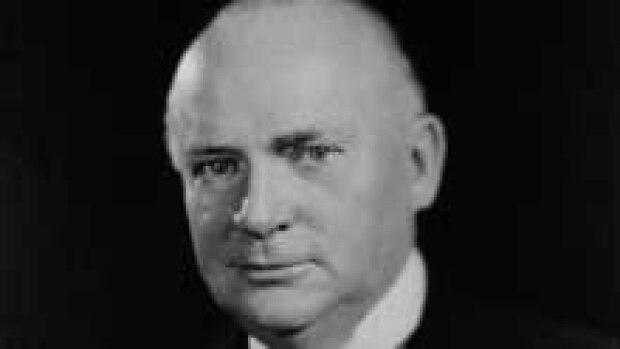Albert County celebrates only N.B.-born Canadian prime minister
This Canada Day, Albert County has decided to celebrate one of its own and the only Canadian prime minister born in New Brunswick.
Richard Bedford Bennett was born in Hopewell Hill in 1870 but grew up in nearby Hopewell Cape.
Stuart Liptay, president of the Albert County Historical Society, said the group had planned a larger celebration of Bennett's 150th birthday, but COVID-19 necessitated a change.
"Rather than a birthday cake, we have 150 cupcakes coming to honour his 150th birthday," said Liptay.
"Original plans were to have a live actor portray Bennett during the day and people could interact with him. But because of COVID-19, we recorded him and we're going to be unveiling that video."
While many of the activities had to take a more virtual route, people will still be welcomed to come to the Albert County Museum in Hopewell Cape for the event.
"We have six acres and so we'll be able to spread people out," said Liptay.
"It'll be outdoors and so there'll be plenty of social distancing."
But as much as his roots are undeniably New Brunswick, Bennett didn't spend much time in the province after going into politics.
In Parliament, he only ever represented ridings in the Calgary area.
He was the MP for the riding of Calgary from 1911-17, until the riding was dissolved, and for the riding of Calgary West from 1925-39.
Depression PM
In some ways, Bennett came along in the wrong place at the wrong time.
His first major political appointment was as justice minister in the first Arthur Meighen government, a post he held for 86 days until Meighen was defeated in the 1921 election.
Bennett's second major post was as finance minister in the second Meighen government. This government came about because of the constitutional crisis known as the King-Byng Affair, when governor general Lord Julian Byng refused prime minister William Lyon Mackenzie King's request to dissolve Parliament.
[IMAG
Bennett held the finance portfolio for 76 days, until Meighen's Conservatives were defeated in the 1926 election.
Bennett's bad luck extended to his election as prime minister.
He served from 1930-35, during the Great Depression, a difficult time throughout Canada.
He did not receive high marks for his response to the Depression.
Complicated legacy
One of his major programs was a series of work camps, set up in remote areas of the country where single men worked long hours for little pay.
Combined with his personal fortune and impersonal style, his management of the country left many Canadians underwhelmed.
But they did name one thing after him.
"Bennett Buggies" were motor vehicles driven by livestock when motorists couldn't afford gas and oil.
"Most of the people remember him and all the negatives about his reign, like the failing of the businesses, massive unemployment, the Dust Bowl," said Liptay.

D
"All the negatives are what he's remembered for and none of the positives."
While Bennett may have received poor marks for the way he steered Canada through the first part of the Depression, there are other things he's known for.
He established the Bank of Canada and the Canadian Radio Broadcasting Commission, the precursor to the CBC.
Bennett would only serve one term as prime minister. His Conservative Party was defeated by the Liberals in the 1935 election.
The party would drop from 134 seats, to just 39. The Liberals would hold on to power for more than 21 years.

